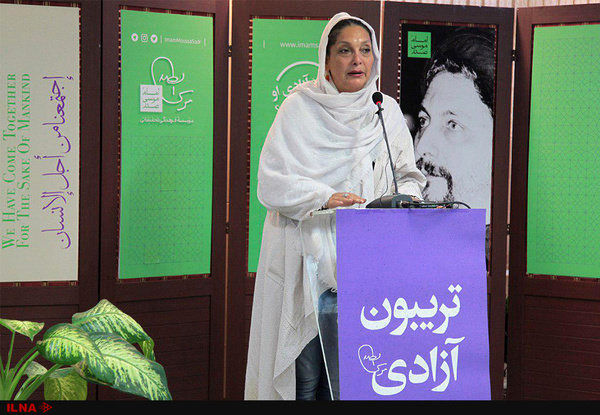“Women’s Prison” director wishes to make film on Shia leader Musa al-Sadr

TEHRAN –(Iranart)- Manijeh Hekmat, the director of the controversial 2002 drama “Women’s Prison”, has disclosed her wish to make a biopic on Musa al-Sadr, a Shia Muslim religious and political leader in Iraq who is also known as Imam Musa.
She made the remarks on Tuesday at the Freedom Tribune, a meeting series that is occasionally organized by the Musa al-Sadr Institute in Tehran to examine various issues.
In August 1978, Imam Musa disappeared with two aides on his way to attend ceremonies commemorating Libya’s Muammar Gaddafi’s ascent to power. When he was not seen in Tripoli, it was said he had left for Italy. While his fate is not known, it was widely suspected that he was kidnapped at the behest of Gaddafi, who may have viewed him as a religious rival.
“I wish I were sufficiently skillful that I could make a film on Imam Musa,” Hekmat said and added, “If I made the film, it absolutely would be from a woman’s viewpoint, but I don’t suppose I possess such ability.”
She said that she was familiar with Imam Musa from reading two books that she received from Mehdi Firuzan, Imam Musa’s son-in-law, who is also his nephew.
The books carry his family’s memories of the Iranian-Lebanese figure and his enlightening speech at the Saint Louis Capuchin Cathedral, a Latin Catholic church in downtown Beirut, on February 18, 1975.
“I began reading the first book at 7 p.m. and continued nonstop until 2 a.m. I was absolutely amazed by his interesting definitions of religion and I was constantly flying into a spasm of thought regarding where is he now in this world, which is now in total chaos,” Hekmat said.
She noted that modern human is in need of clerics like Imam Musa who can give new religious definitions, which connect people from all religions together, and added, “In cinematic shots, I envisioned his handsome and earnest face behind bars, and I imagined how he must feel in prison after 39 years, and what he has been thinking about over these years? Has he been kept abreast of what is happening about Shia women in the world? Does he know that today, people are killed in the name of God, Muhammad (S) and Ali (AS)?”
She said that it is a difficult task to make a film on Imam Musa, and that it could never cover all aspects of his character.
“It is really hard to tolerate 39 years in capture; his patience is admirable,” Hekmat noted.

